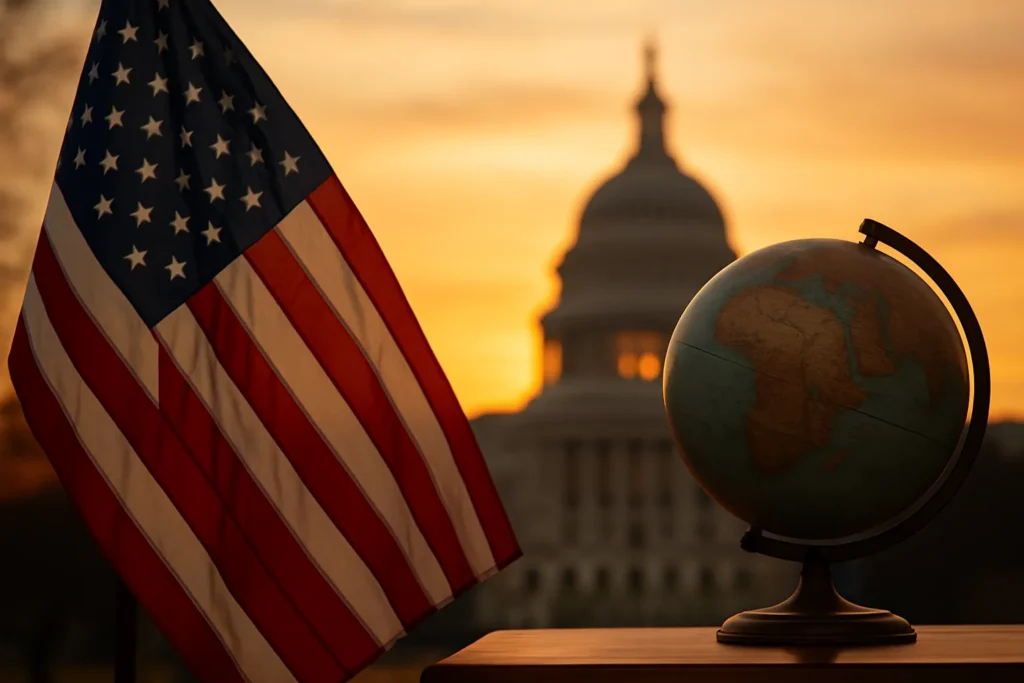Secret Offers in the Shadow of Conflict
The phrase “backroom diplomacy” brings to mind smoke-filled rooms and confidential memos, but few diplomatic maneuverings in recent memory have matched the audacity of the Trump administration’s proposal to Iran: up to $30 billion in investments, contingent on shelving uranium enrichment, all under the thick fog of regional conflict. According to a recent CNN investigation and multiple corroborating outlets, the United States quietly floated this unprecedented financial incentive not long after U.S. airstrikes pummeled Iranian nuclear sites. The plan? Tempt Tehran back to the negotiating table with promises of vast civilian nuclear energy support, in return for strict limits on its most sensitive nuclear activities.
The conditions of these clandestine talks were startling. The promised billions wouldn’t be directly wired from American accounts—instead, Gulf Arab partners, courted by Washington, would pony up the majority of the funds. More intriguing still, the scope of the offer: sweeping investments aimed at building a civilian nuclear infrastructure incapable of supporting weapons production, yet sufficient to claim energy independence.
Meetings between U.S. special envoy Steve Witkoff and Gulf allies reportedly lasted hours behind tightly closed doors at the White House, revealing not just diplomatic urgency, but also desperation. These negotiations unfolded against the backdrop of the Israeli operation “Rising Lion” and a fragile regional ceasefire mediated by Qatar—evidence of how American leadership often finds itself stitching together uneasy alliances while bombs still fall.
Sanctions, Standoffs, and the Limits of Conservative Diplomacy
No recent administration has leaned as heavily on sanctions—and “maximum pressure”—as President Trump’s. The past several years saw America squeeze Iran relentlessly, tightening an economic vice and offering only rare flashes of diplomatic daylight. Yet the latest offer, essentially a $30 billion carrot for a civilian (yet strictly non-enrichment) program, signals a marked divergence from this orthodoxy. If anything, it illustrates the inherent contradiction in conservative foreign policy: talk tough while quietly offering significant concessions, a pattern that’s repeated from Nixon’s overtures to Mao, to Reagan’s backchannels with Gorbachev.
Harvard historian Dr. Marc Lynch notes, “Drastic sanctions have a way of cornering adversaries—sometimes into negotiations, but often into doubling down.” It’s a maxim that was on full display here. Trump’s team was willing to go off-script and entertain soft-power options, but only after years of hard-line stances, Middle East volatility, and the specter of a region on the brink. By offering investments largely sourced from Gulf partners, Washington was attempting to recalibrate its risk—hoping to maintain pressure, but also desperately needing a win.
What about Iran? Supreme Leader Ayatollah Ali Khamenei rejected the U.S. demand outright, deriding it as a veiled attempt to keep Iran technologically subordinate. As he declared after the plan became public, “the Islamic Republic slapped America” by refusing to surrender its right to enrichment—framing the negotiation as a battle for national dignity. According to an analysis by The Carnegie Endowment, domestic Iranian politics have consistently made it all but impossible for Tehran to view such offers as anything but aggressive attempts at containment.
“Drastic sanctions have a way of cornering adversaries—sometimes into negotiations, but often into doubling down.” —Marc Lynch, Harvard historian
Polling by Pew Research shows that a solid majority of Iranians remain deeply skeptical of Western promises, haunted by a long memory stretching to the coup against Mossadegh in 1953, the battered legacy of the Iran-Iraq War, and decades of sanctions-driven deprivation. With those bitter historical reference points, why would a $30 billion fund—facilitated by Gulf states with their own axes to grind—suddenly be trusted?
The High Stakes of Progressive Diplomacy
If you find yourself wondering whether the Trump administration’s gambit was bold, reckless, or perhaps both, you’re not alone. The stakes extend far beyond the diplomatic posturing of any one leader. Dana Stroul, a senior fellow at the Washington Institute for Near East Policy, observes that, “a genuine deal must do more than dangle investments; it must address the deep-rooted suspicion on both sides and offer a pathway for gradual normalization.” The conservative approach, reliant on maximalist demands and punitive measures, has left much of the Middle East teetering on the edge—and left progressive policy thinkers clamoring for engagement founded in mutual respect and accountability.
The idea of investing in Iran’s civilian nuclear infrastructure, on its face, is not radical—Japan and South Korea serve as historical precedents, benefitting from international support for peaceful nuclear generation, tightly controlled and independently verified. The real shortcoming is in the lack of trust-building, consistent engagement, and recognition of national pride. Progressive foreign policy would instead emphasize human rights, cross-border cooperation, and sustained support for democratic movements. Sanctions, when imposed, must be carefully targeted to punish governments, not impoverish the populace or drive hardliners into deeper intransigence.
How could the U.S. approach be improved, for the sake of peace and stability? Genuine engagement would require recognizing Iran’s legitimate security interests, offering phased relief for verified compliance, and—here’s the hard part—recognizing the limits of American leverage. Harvard economist Jane Mansbridge highlights that “no agreement will last if either side feels coerced or humiliated. Lasting peace comes from inclusion, not imposition.”
When you zoom out from the headlines, the $30 billion offer is both a stunning diplomatic anomaly and a mirror of America’s ongoing struggle to reconcile security goals with progressive values of collective well-being and sovereignty. The world can ill afford another failed round of bombastic threats followed by dashed hopes. For those who champion diplomacy over domination, this saga offers a pointed lesson: real peace, and real progress, require more than just cash incentives or strong-arm tactics—they demand trust, transparency, and shared commitment to a better future.

